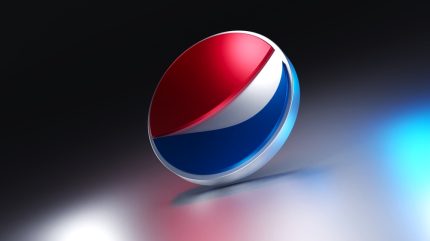
The summer of 2024 has been dominated by a packed sporting calendar, offering ample opportunity for retailers to advertise to millions of engaged consumers.
Multinational food and beverage giant PepsiCo’s international beverages chief marketing officer Mark Kirkham tells Retail Insight Network about the company’s “global-to-local” marketing approach, and how it is taking its brand partnerships from strength to strength.
PepsiCo is a familiar presence at major events such as the UEFA (Union of European Football Associations) Champions League, boosting its already impressive portfolio of brand partnerships.
In 2023, GlobalData’s analysis of the beverages sports sponsorship landscape in the Americas estimated that PepsiCo had 55 sports deals in place worth $1m or more annually and investments of more than $100m in US teams alone.
Managing international brand partnerships
PepsiCo also owns globally renowned food and beverage brands including 7-Up, Tropicana, Gatorade, Quaker and Doritos. This reach allows the company to seek out a broad range of partners to target new audiences.
Kirkham explains that PepsiCo’s global-to-local approach means “we may have global ideas, but we want to empower markets to look at locally relevant ways of activating against these.”
How well do you really know your competitors?
Access the most comprehensive Company Profiles on the market, powered by GlobalData. Save hours of research. Gain competitive edge.

Thank you!
Your download email will arrive shortly
Not ready to buy yet? Download a free sample
We are confident about the unique quality of our Company Profiles. However, we want you to make the most beneficial decision for your business, so we offer a free sample that you can download by submitting the below form
By GlobalDataHe emphasises PepsiCo’s partnership with UEFA, which began in 2015 and has recently been extended to 2027, as having a “unique global reach that attracts 2.2bn people each season.”
UEFA Champions League (UCL)-branded products are a key driver of traffic both in-store and in e-commerce, alongside pack solutions, point-of-sale activations and marketing campaigns with athletes supporting PepsiCo’s brands.
The company works with local markets to individualise and localise these campaigns and activities to attract consumer attention globally.
The key to such partnerships is focusing on mutually beneficial outcomes for stakeholders. As Kirkham states: “We are able to deliver this by looking outside the more traditional aspects of partnerships, like commercial value, and shifting towards social impact, equity and digital data.
“By collaborating, we can establish a unified and impactful presence across the world.”
Consumer centricity
Kirkham highlights PepsiCo’s focus on marketing to younger sports fans. “This is critical since generations like Gen Z and Alpha have become our key consumers and target audience.”
Keeping consumers front of mind means that alongside its broader marketing campaigns, PepsiCo must also be on the ground at global sporting events, leveraging activations inside stadiums.
Some recurring events hosted by PepsiCo include an all-female, all-male and mixed Gatorade 5v5 tournament, a Pepsi-sponsored Kick-Off Show, and a Friday Night Show presented by Rockstar Energy Drink.
Data is also essential for digital consumer engagement across PepsiCo’s channels. “With access to the UCL’s database of millions of football fans, we can deliver bespoke experiences to consumers based on their unique preferences and behaviours across multiple digital touchpoints, leveraging the power of personalisation at scale,” Kirkham explains.
As Gen Z consumers demand immersive and personalised retail experiences, PepsiCo is also tapping into diverse engagement formats, including out-of-home environments.
Using data insights to sate loyal fanbases, in late May 2024 the company hosted a Pepsi Mixology station at the Champions League Festival at Potters Field Park in London where fans were invited to try a range of Pepsi MAX Zero Sugar drink profiles.
Kirkham provides another example of how PepsiCo’s brands are the best vehicles to communicate the company’s efforts in areas that consumers care about, including sustainability.
“Rockstar Energy Drink partnered with UK technology start-up Pavegen to install an energy-generating kinetic dance floor in Trafalgar Square, London. This interactive brand experience converted attendees into active participants surrounding the UCL final.”
PepsiCo’s people-focused approach extends to its own employees too, as with its “She is PepsiCo” campaign that recognises women who work in frontline and supply chain roles for the company.
The combined power of these brands and campaigns make up the global marketing machine that is PepsiCo.
PepsiCo’s view on retail trends
Kirkham says that PepsiCo is in the middle of a digital transformation that will touch nearly every facet of the organisation.
In terms of key trends on which the company is focused, he circles back to personalisation as a retail industry shaper – especially so for beverage products.
“People want beverages that suit their individual preferences which vary by activity, time of day, mood or location. It’s important for us to continue innovating our portfolio to offer options,” he states.
Like every major company, PepsiCo is also keeping a close eye on developments in AI. “Through AI-powered systems, we are reshaping how we plan, make, move, sell and deliver products. We also know consumers are using AI to explore new recipes and flavour combinations, which provides insight into new ingredients and recipes to explore.”
While few retailers can reach the mammoth heights of PepsiCo’s overarching brand presence, the company remains an inspiration for its consumer-focused approach and creative marketing strategies in the sports world and beyond.



